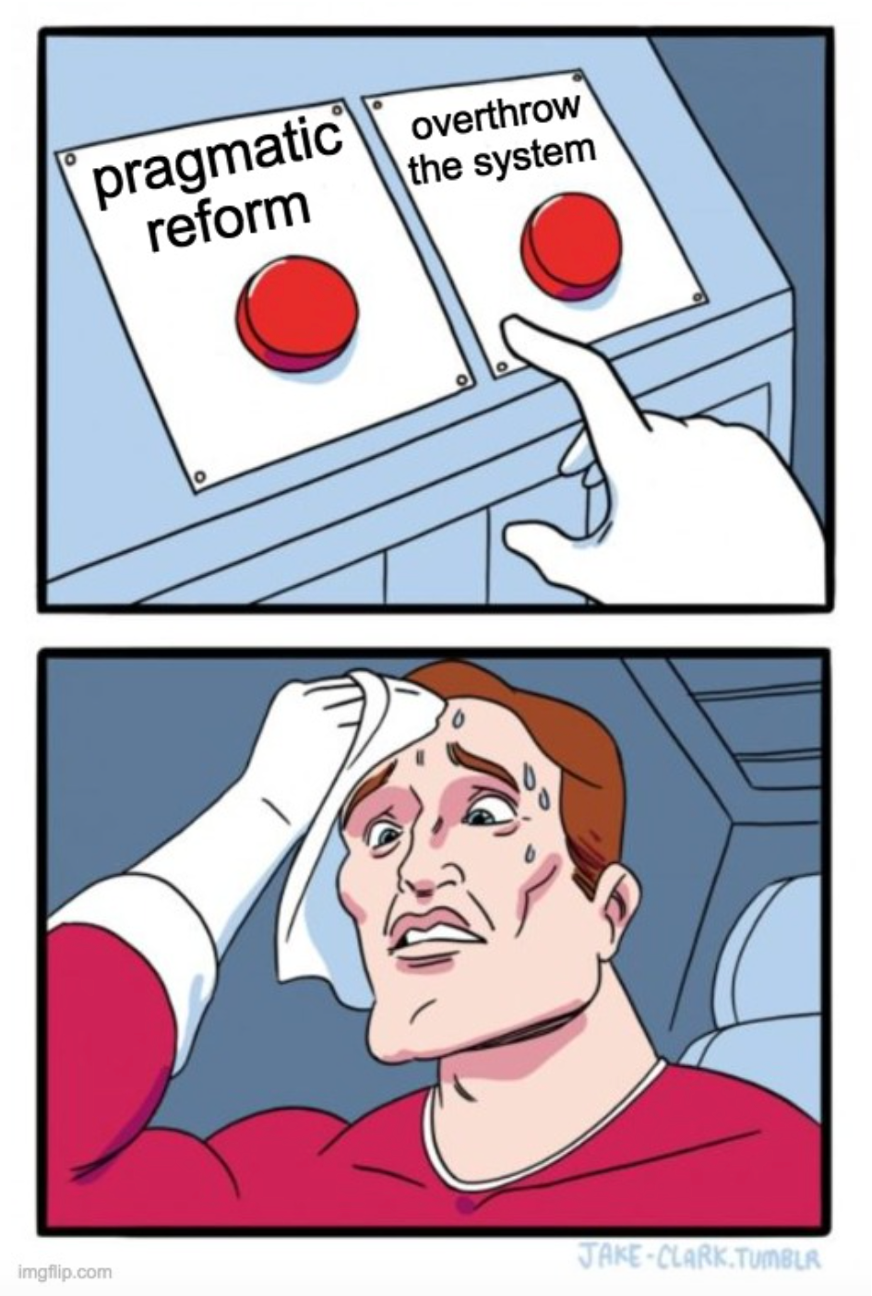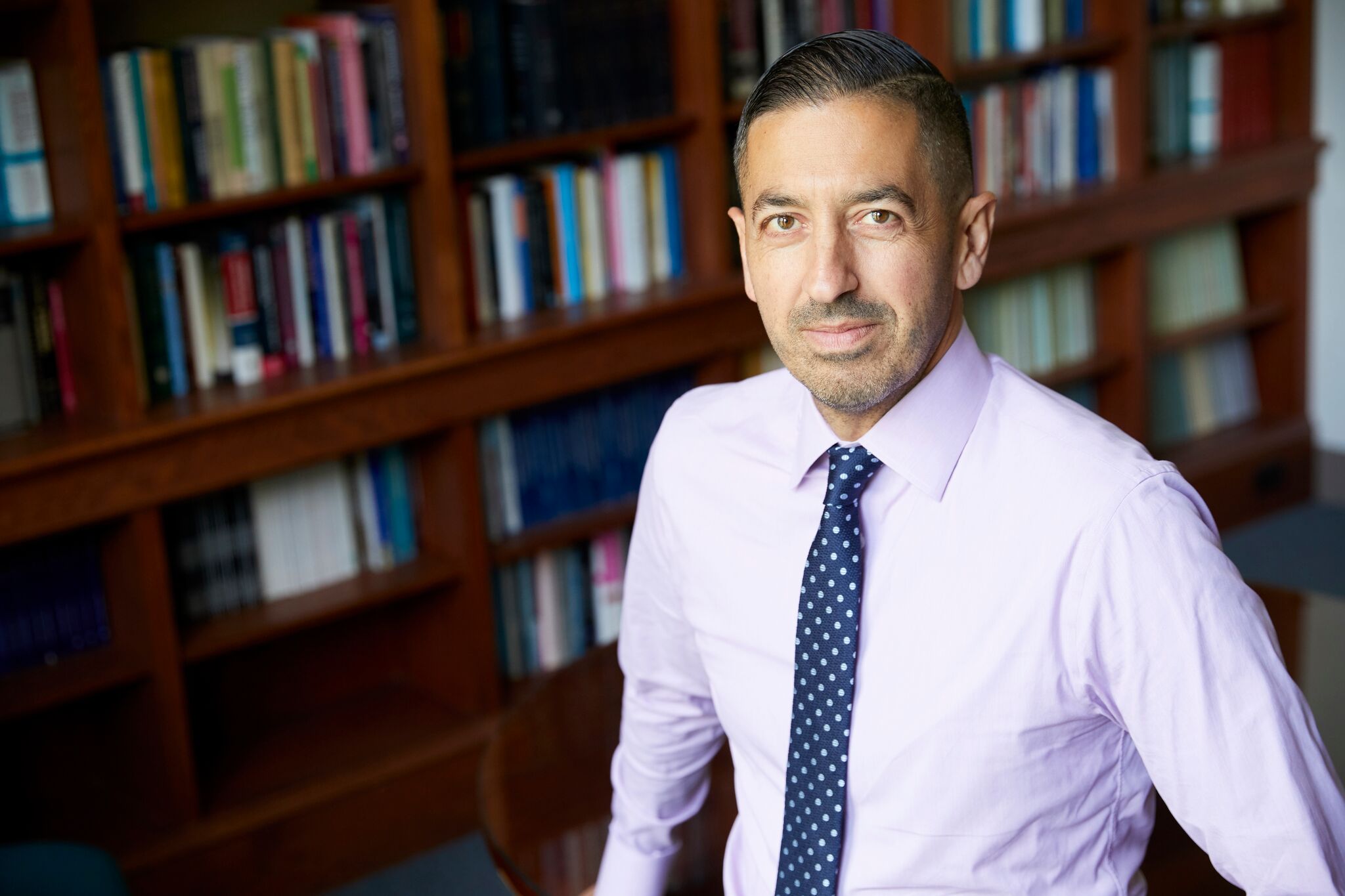This piece was first posted on Substack. To comment, please go there.
The business of creating a healthier world is, fundamentally, the business of pushing for change. This means pushing against a status quo which often does not serve us well. This can require us to oppose systems, and even people, that are invested in entrenching the drivers of poor health. This is all to the good. However, while we are quite familiar with the reasons why this pushing is necessary—an awareness informed by our understanding of the drivers of poor health—less discussed are some of the ways this pursuit of change can, at times, undermine itself, leading in counterproductive directions. This is well-illustrated through a story told by the conservative political theorist Kenneth Minogue, one which he used to critique the development of liberalism:
“The story of liberalism, as liberals tell it, is rather like the legend of St. George and the dragon. After many centuries of hopelessness and superstition, St. George, in the guise of Rationality, appeared in the world somewhere about the sixteenth century. The first dragons upon whom he turned his lance were those of despotic kingship and religious intolerance. These battles won, he rested for a time, until such questions as slavery, or prison conditions, or the state of the poor, began to command his attention. During the nineteenth century, his lance was never still, prodding this way and that against the inert scaliness of privilege, vested interest, or patrician insolence. But, unlike St. George, he did not know when to retire. The more he succeeded, the more he became bewitched with the thought of a world free of dragons, and the less capable he became of ever returning to private life. He neededhis dragons. He could only live by fighting for causes—the people, the poor, the exploited, the colonially oppressed, the underprivileged and the underdeveloped. As an ageing warrior, he grew breathless in his pursuit of smaller and smaller dragons—for the big dragons were now harder to come by.”
I acknowledge that this story, excerpted from Minogue’s book, The Liberal Mind, may strike some readers of this as perhaps unfair. Where Minogue sees “smaller dragons,” a different perspective might see normal-sized dragons to which we are only just now applying the correct measure of attention.
Yet it is hard to deny Minogue’s story raises some necessary, though perhaps uncomfortable, questions: is there a degree to which we, too, need our dragons, even if certain challenges have diminished or changed over time? Can we know progress when we see it, and, if not, what are the forces which may be clouding our vision? Some thoughts on these questions, on what form our pushing for a healthier world might take, and on how we can better calibrate our efforts so they will always be in proportion to the “dragons” of the moment.
It seems to me that the best place to start is by revisiting core questions: just what are we trying to achieve in public health? How would we like to align the world so that it best supports health? I think that within the public health community there is broad consensus on what such a world would look like. At a fundamental level, it would be a world characterized by social and economic justice. By economic justice, I mean a world where economic systems are geared towards fairness rather than the inequality that currently benefits the well-off few at the expense of the less well-off many. By social justice, I mean a world where no one is unfairly held back by characteristics of identity—whether race, sexual orientation, or gender identity.
Having established these goals, it is then worth asking: what are the key impediments to the fundamental socioeconomic realignments it will take to achieve them? For those who have long engaged with progressive work, the answer to this question will likely be something along the lines of: corporate interests, reactionary political movements, public apathy, and deep-rooted societal pathologies like racism, homophobia, and misogyny. Calibrating our efforts towards a healthier future must, as a practical matter, consider resistance from these areas, these familiar dragons. Over the last few years, we have seen a more explicit, even confrontational engagement with these forces, which has arguably elevated the public’s awareness of the foundational forces which shape our lives and health. Insofar as it has done so towards the goal of progressive change, I would say this approach has been to the good, doing much to advance a necessary realignment.
However, this momentum, for all the good it has done, also raises a potential impediment to positive change. The challenges that stand in the way of a healthier world are not to be solved overnight; for this reason, our push for change has given rise to organizations, fundraising networks, and, indeed, a professional activism that aims to sustain momentum over the long term. This is now a sector unto itself, one which would not exist without the presence of challenges in our world. It is also true that pushing for positive change can bring many rewards, such as the appearance of virtue and the social currency that comes with being on what is widely regarded as the right side of an issue. All this has created an incentive structure where those who push for change, in fact, have much to gain by nothing changing. This can lead to us becoming much like St. George and the dragon. As we make key gains in the work of building a healthier world, there is a temptation to apply to less significant challenges the same level of intensity and moral force we apply to more clearly existential threats, as a means of justifying an activism whose tone is that of a knight charging constantly into battle. This is not to say, of course, that those pushing for change would ever consciously wish for injustice to continue. But it would be naïve to deny there are incentives in place which might keep St. George in the workforce, using the same skills as ever, regardless of how the issues that shape health evolve.
How can we then properly calibrate our work, to ensure we always meet the moment, but do not overshoot crises and risk prolonging them? It strikes me we can do so through three key steps.
- If we wish to change systems, we need to become better at understanding the perspectives of those who do not share our approach to challenges. At a practical level, this can help inform the mutual understanding that can support new areas of collaboration. Perhaps more significantly, engaging, in good faith, with those who may not share our goals can help us to better interrogate our own motives, giving us the perspective which can help us see when we may need to recalibrate our approach to challenges.
- We can remember that, when it seems like our work calls for upending systems, we should not pursue this course lightly, nor should we do so without first considering different approaches to the problems at hand. When confronted with challenges, the temptation is to be quick to embrace upending systems as the go-to solution for all problems, without pausing to consider other options. Now, it is often the case that changing systems is indeed the right way to address problems. Indeed, the reason I left practicing medicine to work in public health is because I saw pushing for systemic change as the key to generating health on a large scale. But there is also truth to the old saying that to a hammer everything tends to look like a nail, and, for this reason, activism committed to bold change should be willing to check its motivations, to ensure its proposed solutions fit what the moment calls for. To answer every challenge with a call for complete upheaval of all that came before is to be neither serious nor effective as a movement. This reflects a persistent tension in activism, humorously illustrated by the image below, a variation of the “Daily Struggle” meme originated by the animator Jake Clark. Creating a healthier world means learning to navigate this tension, to the best of our ability.

- We can take care to calibrate our words according to the needs of the moment. We may not wish to use the language of overthrow when pragmatic reform is what is called for, just as we may not wish to use the language of incremental reform in moments when our speech might support something bolder. If we continually cry “revolution” when what we really need are basic, commonsense reforms, we are liable to drive otherwise sympathetic partners out of our coalition. We also risk being taken less seriously when systemic change really is necessary, our calls for bold action falling on ears which may have long since ceased to listen. If, on the other hand, we always shy from calling for boldness, we are clearly falling short, in a different way, of our mission to advance the structural change that supports health. Rather than going too far, or not far enough, what is needed is balance, and a willingness to speak with care and precision about the issues at hand.
The post-COVID era has the potential to be a time of realignment, with a collective rethinking of our approach to the upstream forces that shape health. As we push for change, recalibrating our approach to creating a healthier world, we need to take care to stay engaged with many different perspectives, to tailor our approach to the specific demands of the moment, aiming to be maximally effective at a time when nothing less will do.


